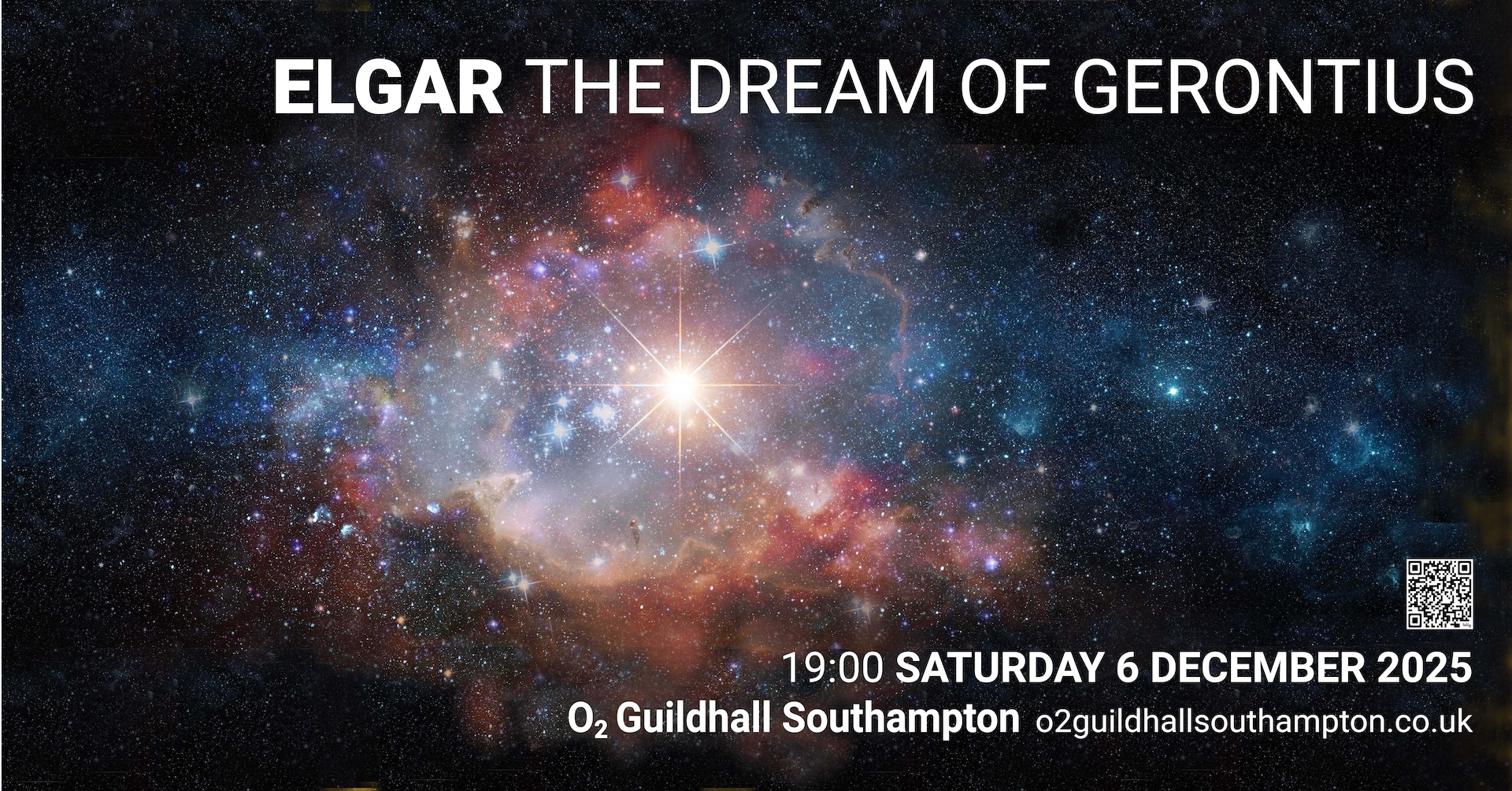Susan Bickley mezzo soprano
John Findon tenor
Darren Jeffery bass-baritone
Southampton Philharmonic Choir
Southampton University Philharmonic Choir
Docklands Sinfonia
Stephen Hope guest conductor
Please note that doors open at 6pm for the 7pm concert
Edward Elgar’s The Dream of Gerontius stands as a towering achievement in choral music—deeply spiritual, emotionally profound, and musically innovative. Premiered in 1900 at the Birmingham Triennial Festival, the work is a dramatic setting of Cardinal John Henry Newman’s meditative poem, which charts the journey of a soul from deathbed to judgment and beyond. Gerontius, a symbolic everyman figure, reflects on life’s meaning and the prospect of eternity, giving the work a resonance that transcends religious boundaries. It is not just a theological exploration, but a profoundly human one—addressing questions of legacy, fear, and ultimate hope.
Elgar's music elevates Newman’s already intense text to astonishing emotional heights. With its sweeping orchestration, complex choral writing, and demanding solo parts, the score is rich in contrasts—from hushed reverence to terrifying confrontation, from ecstatic vision to profound lament. The composer was deeply influenced by Wagner, and this can be heard in the through-composed structure, the recurring motifs, and the dramatic integration of music and narrative. Yet Elgar’s own voice remains unmistakable: noble, lyrical, and achingly sincere.
Rather than offering a rigid doctrinal statement, The Dream of Gerontius invites us into a deeply personal contemplation of life and death. It is this universality—its power to move hearts regardless of creed—that continues to inspire audiences more than a century after its creation. For performers and listeners alike, it is a journey of the soul, both intimate and epic, rooted in Elgar’s own spiritual and emotional truths.
Tickets
Buy tickets online, priced at £30.60, £24.00 and £17.40 (Tickets bought online are issued as e-tickets.) or contact the box office by phone on 023 8268 7456 (Wednesdays, 10am – 4pm; Fridays, 10am – 1pm).
All prices include booking fees and the O2 Guildhall Southampton restoration levy of £1.85. There is an additional handling charge per transaction of £2.95. Concessions are available for the disabled, carers accompanying the disabled, job-seekers, students and children.



